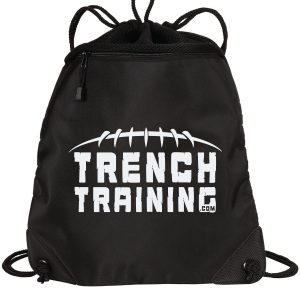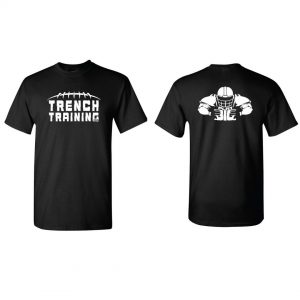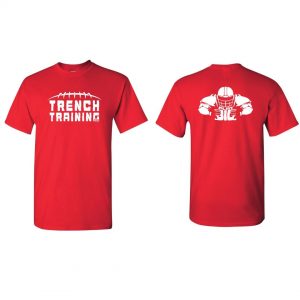
by Steve Stark | Feb 26, 2016 | Blog
Balancing sports and academics and your social life requires a plan and help from mentors.
I would love to tell you when I was a competing athlete that I was well balanced.
That was not the case and the mentors in my life tried to help me but I refused to take that help.
If there is one thing that I would like a re-do in life it would have been to listen about balancing sports and academics and my social life.
Today in my life, I see the importance of balance.
Coaches can and should help your athlete to learn some balance.
Preparation is the key to success. If you wait until last minute you will NOT perform to your potential.
Balance requires a plan. Each year, month, week and day needs a thought out plan.
Most people have several priorities but I’m guessing your young athlete’s goes something like this: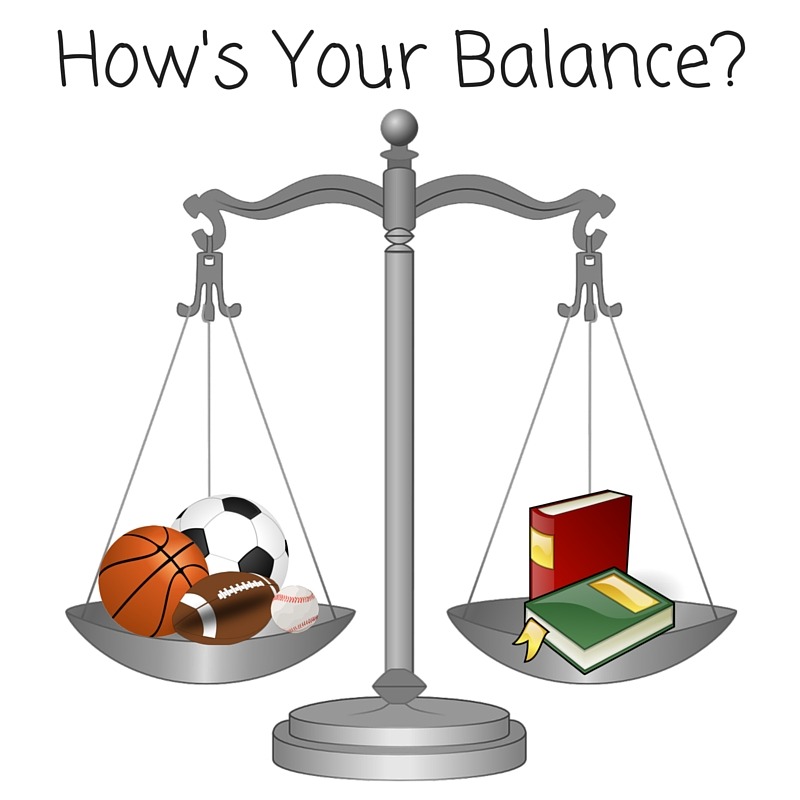
1. Sports
2. Social
3. School
4. Family
5. Spiritual
6. The Rest
If your priorities are like the above or something different that is fine.
This is a starting point.
That one was mine and now it looks much different:
1. Spiritual
2. Me
3. Career
4. Family
5. Social
6. Th Rest
Each one of these priorities should have a % placed on them.
Then when sitting down each week you can assign appropriate times.
For instance, in the off-season you will work just as hard but not so many hours as wen you are in-season.
Finals or test times you will need to change percentage much higher for academics.
I know it’s “cliche” but having an assignment notebook, reminder log on your phone and/or any number of tools that are available will greatly help you.
I watched athletes such as Don Davey and Joel Hilgenberg who were not only popular, successful athletes but also successful in life.
In Don Davey’s case, he was a very high GPA student in engineering.
They had their priorities as such and were able to do things many of us don’t because of being out of balance.
In my case because my balance sheet was out of order I tended to put too much % in social which affected all the other priorities.
Proper balance with your time will allow your athlete to be successful in all areas of their lives.
It does however require discipline and the ability to say no to some things.
I have yet to meet someone in all the years I’ve been around who ever regretted being in balance and being able to say no to things that did not build them to be better people.
But I have met thousands who have regrets because they did not listen, learn and build a balanced priority list.
It’s your athlete’s choice, which one will you help them choose?
Work Hard, Play Big!

Coach Glenn
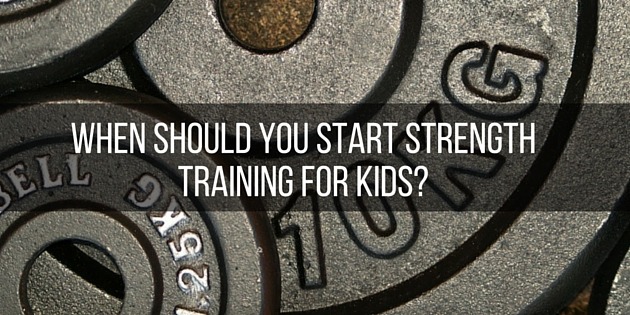
by Steve Stark | Feb 23, 2016 | Blog
Strength training for kids has always been a controversial topic.
We all want what is best for our kids.
Unfortunately, when it comes to athletics, we don’t always know what’s best.
We want our kids to become the best that they can be.
The question we want to have answered is how young should they begin strength training.
The answer is you can begin strength training for kids at any age…
…with a few very important guidelines to consider.
Strength Training for Kids 5 Guidelines
1. Proper movement must be taught first.
The first thing young athletes who are starting strength training need to learn is how to control their body.
Athletes need to know how to perform basic movements like stopping, landing, cutting, jumping and falling.
That’s right, there’s even a correct way to fall.
They need to know how to manipulate their body before we ever think about putting them under a bar and loading them with weight.
Can they perform a proper bodyweight squat and lunge?
Can they perform 10 quality push ups?
A good trainer will put an athlete through a functional movement assessment prior to starting any program.
This assessment will identify any deficiencies so those can be addressed with the strength training program.
2. Avoid specialization.
Specialization is all the rage these days.
More and more kids are playing one sport year-round.
Fewer and fewer kids are playing multiple sports.
This is very detrimental to the development of young athletes.
The variation in training and competing in multiple sports has incredible advantages for an athlete’s overall ability.
Participating in multiple sports helps build muscles in ways that one sport cannot.
This translates into better, stronger athletes who are less prone to injury.
Specialization has been shown to lead to higher instances of overuse injuries.
Kids, especially pre-teens, can reap great genefits from being involved in multiple sports.
3. Encourage “free play”.
“Back when I was a kid…” (Wow, I used to make fun of my dad for saying that)
We used to have a lot more time for pick-up sports.
I logged hundreds of hours playing basketball, football, baseball, wiffleball, tag, and dozens of crazy active games that we just made up.
We didn’t have year-round structured sports.
Whatever sport we were in had a couple practices per week, maybe.
Otherwise, we were involved in some neighborhood game every day.
This is where athletes were made.
Our yards or driveways were where we learned skills.
We didn’t think about strength training for kids.
We trained on the playgrounds.
That just doesn’t happen much anymore.
Video games, movies, and mobile devices have taken the place of active, free play.
We as a family have strictly limited the amount of time our kids are allowed to spend in front of electronics.
We want our kids to be active.
It doesn’t matter what they do.
Riding a bike, building a snowman, playing frisbee or aything with a ball is going to allow kids to work on improving their movement.
These are the things that create well-rounded athletes.
4. Proper nutrition is essential.
What do we expect our kids to become if we stuff them with fast food.
Drive-thrus are not meant for food just banks.
We are a product of what we put into our bodies.
With busy schedules it can be difficult to eat well.
Be sure your athlete understands the importance of nutrition.
Without the proper fuel those strength training sessions will not be as productive.
5. Be an example.
Your kids not only get their genetics from you but also your habits.
If you aren’t setting a good example with an active lifestyle and proper nutrition, you are not helping your athlete succeed.
This doesn’t mean you have to be working out 4 hours a day and eating bird food.
However, if you don’t want your kids eating junk then they can’t see you eating it.
If you want your kids to be active, then you need to put forth the effort to be active with them.
The saying “Do as I say not as I do.” isn’t gong to work.
If you want to do everything you can to help your child reach their potential then you need to do the same.
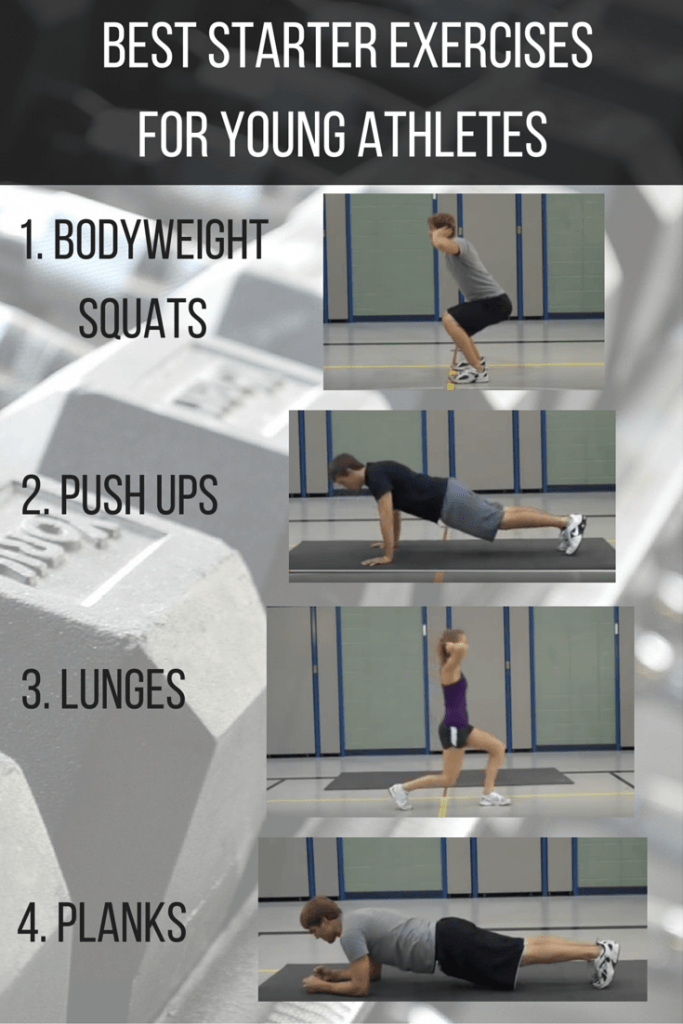
Questions to Consider When Looking for a Trainer
1. What is their fitness and training philosophy?
Some specific questions you might ask would be:
What do they feel is important in a training program for children? Proper form and movements should be at the top of their priorities.
Can they provide guidelines for nutrition? Not all trainers have a background in nutrition but most good ones are knowledgable in this area.
What types of equipment will my child need or be using? If they send them to the weight machines… run in the other direction.
2. Do they perform a functional movement assessment?
Proper movement and form are essential building blocks to effective training.
Your athlete’s trainer needs to be aware of any weaknesses your athlete has and should address those in their program.
3. Do they have references?
The best way to find about a trainer is to talk to people they have trained.
Be sure to get references and speak to some parents of the kids the trainer has worked with.
Find someone who has experience with strength training for kids.
4. Have they worked with children before?
We all know working with kids takes patience. (Some adults require a lot of patience too.)
Be sure that you and your child are comfortable working with their trainer.
Use those references to find out the trainer’s temperament.
Most kids don’t react well to yelling and screaming.
This method of coaching and training just doesn’t work so avoid those trainers like the plague.
Your athlete’s training program should be fun as well as functional.
Strength training for kids, above all else, should be fun.
If you found value with this post please like, comment and share.
Let’s Play,

Coach Steve
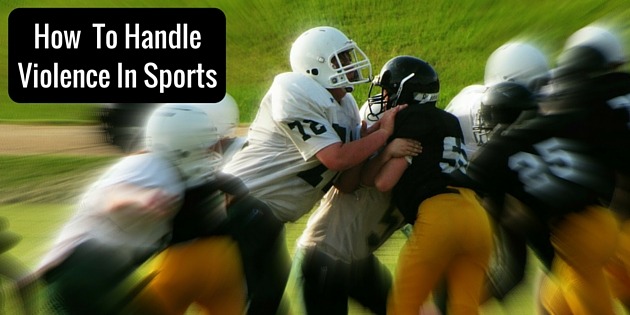
by Steve Stark | Feb 15, 2016 | Blog
We are seeing violence in sports all the time.
The nature of competition causes us to generate very strong emotions around our games.
Dealing with these emotions can be difficult for adults and especially for kids.
So many of us watched the Badger game this past weekend. During the game there was an instance of a player pushing another players head into the basketball court out of frustration (I am giving him benefit of the doubt).
Why do players at times lose control of their emotions and go to violence that is unnecessary? We have heard of players punching their wives, hitting girlfriends, shooting others etc. etc.
Violence is a part of life and there is no way to stop and end all violence, however, we can learn to control the use of violence if we are willing to. Any time we get angry we have adrenaline that can cause us to do more than we normally do when we are at rest or are calm.
One of the methods that is used to help athletes control their emotions is to teach them to “flip a switch”. This is used so that players are able to get their emotions and mentality jacked up before and during a game and then once the game or practice is over they then “flip the switch” back to realizing that they have been practicing, learning, using violence since they were young to become successful.
Athletes need to understand that drinking alcohol or taking other forms of mood altering drugs can blur the switch and cause them to use this violence in an inappropriate manner. There are 5 techniques that can be used to help athletes flip the switch to off after an emotional game.
5 Techniques to Deal with Violence in Sports
1. Work with a Mentor, Coach, Psychologist who is trained in working with emotions.
This person will be able to use real life scenarios and help you actually practice flipping the switch so that you can keep yourself from entering into situations that you can never take back once it happens.
2. Keep yourself in balance mentally and physically.
The more in balance we are the less likely emotions will take over our minds and body.
3. Refrain from using alcohol or drugs.
This is really important during your sports career as many people are going to purposely try to set you off. If you are under the influence this makes it much more difficult to walk away or stay out of this type of confrontations.
4. Learn how to communicate so that anger is not the main ingredient in your relationships.
We need to find and keep trusting, self building relationships that help us to become better people not ones that take us out of our best.
5. Be willing to discuss these techniques with the people around you.
Let those who support you know when you are struggling with these emotions. Find a friend that you can really trust. Or look for a mentor that will have your best interest at heart. This can be difficult especially if you are a top athlete as many people are trying to use you or want to know you just because of your status. It is important to really find some good people that are interested in you as a person not as an athlete or star.
Why is this so important? Life is very similar in many ways to sports.
The more we can use sports to learn about life the better people we will become.
If we can learn to handle and use our emotions in a positive way we will become better bosses, employees, husbands, wives, fathers and mothers.
This is what trench training is all about. Building young athletes into better adults.
Work Hard, Play Big!

Coach Glenn
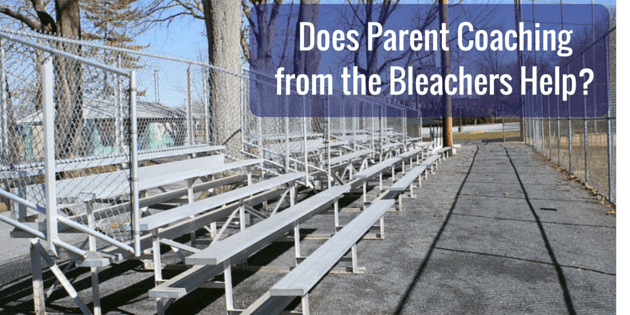
by Steve Stark | Feb 7, 2016 | Blog, coaching kids
Is a parent coaching from the bleachers helping their child’s performance?
The answer is no and in many cases parents who yell instructions from the sidelines actually have a negative impact on their athletes performance.
Parents always want to see their children succeed.
That’s the reason we are so passionate about watching our kids play sports.
However, what we say from the bleachers can have a huge effect on our children’s performance.
And not in a good way.
Parent Coaching and Instinctual Thinking
A few years back I had an opportunity to listen to sports psychologist, Dr.Alan Greenberg speak to a group of youth parents.
He explained something that I knew about parent coaching but had never quite put together until his presentation.
Athletes spend hundreds if not thousands of hours practicing the skills required for their sport.
The reason athletes spend so much time practicing is obviously to get better, right?
They also put in all this time to have those skills become instinctual.
What Dr. Greenberg explained is that we want athletes primarily using the part of the brain that supports these instinctual skills.
The muscle memory and instinctual play is controlled by one part of the brain while instructions are processed by another.
You can only use one of these areas at a time.
The mind can process things in a way that doesn’t require the athlete to “think’ about their actions.
Now, I know what you’re going to say, “Athletes have to think while they play”.
Of course they do… but it’s how they are thinking that makes all the difference.
Have you ever seen a player ‘in the zone”? Hitting every shot or making every play?
Do you think they are listening to instructions during this time? Is that the reason they are on fire?
The zone they are in is in the instinctual part of their brain.
If athletes are constantly bombarded with parent coaching, this takes away from the athlete’s ability to think instinctually.
Parents yelling instructions from the bleachers only confuse the athlete.
Even with the most caring intentions these instructrions are ultimately detrimental to your athlete’s performance.
So what should you be yelling from the bleachers?
Parents Coaching vs. Parents Cheering
Athletes need to know that their parents love and support them regardless of how they play.
They have to feel like their parents will be there for them in a way that has NOTHING to do with performance.
Kids who KNOW that their parents are in their corner without judgement perform better. Period!
I heard a youth coach once say “parents cheer and coaches coach”.
This is great motto to keep in mind at your child’s sporting events.
Here’s a tip that might help you stay away from parent coaching.
When you are at a sporting event for your child never yell any phrase that contains a verb.
Keep from saying things like, “Play defense!”, “Shoot the ball!” or “Run faster!”
Instead use phrases like, “”Great play!”, “Awesome shot!” and “Nice pass!”
It may seem silly but you need to stick to positive cheering instead of instructional coaching from the stands.
This will allow your child to play without over-thinking and they will know that you are there to be their biggest fan and not their second coach.
If you found value with this post please like, comment and share.
Let’s Play,

Coach Steve

by Steve Stark | Feb 1, 2016 | Blog, Recruiting
A multi-sport athlete will always have advantage over those who specialize in one sport.
Specialization in youth sports has become the norm across the United States.
Parents are pushing harder than ever to “make” their child a star.
Only about 2% of high school athletes are awarded scholarships each year to NCAA colleges and universities.
Those are not good odds for your athlete.
Want a quick reality check regarding your budding scholarship athlete?
Check out this article from CBS Money Watch: 8 things you should know about sports scholarships.
I feel incredibly fortunate to have earned a scholarship to play football at the University of Wisconsin-Madison.
However, I almost made a terrible mistake as a high school junior.
My Story About Being A Multi-Sport Athlete
When I was a junior in high school I realized that I had a good chance to earn a football scholarship.
It was an exciting time but it was also a very confusing time.
I played 3 sports from the time I was 9 years old; football, basketball and baseball.
Football wasn’t even my favorite sport.
I actually liked playing basketball and baseball more than football.
However, I knew that football would offer me a way to go to college.
Prior to the start of the basketball season my junior year I was convinced that I needed to focus on football.
I was not going to try out for the basketball or baseball teams and instead spend my winter and spring in the weight room.
Luckily my parents and I had a conversation with a recruiter from the University of Wisconsin before I made that decision.
That recruiter told me that not playing basketball and baseball would be a terrible mistake.
He gave me 2 reasons that I should remain a multi-sport athlete.
2 Reasons To Be A Multi-Sport Athlete
1. Cross training.
Every sport you play requires speed, agility and power.
Building those 3 areas are done the same way regardless of what sport you play.
However, there are physical differences in the way that sports are played.
For example, football and baseball involve more short bursts and less endurance.
Basketball and soccer involve more endurance training and less short bursts.
As a multi-sport athlete, your body is conditioned differently in different sports.
You are going to train your body differently in sport with regards to speed, agility and power.
That variation in training while playing one sport sport can help you see improvements in other sports.
In my case playing basketball improved my agility and endurance in ways that “working out” could never do.
Playing baseball worked my hand-eye coordination. There’s nothing in a weight room that would have given me that training or experience.
2. Competition.
That Wisconsin recruiter really drove this point home and it has stuck with me ever since.
Every athlete should take advantage of EVERY chance they get to complete.
We only get so many chances to compete in sports. It’s a finite number.
Competition in sport teaches us things that we CANNOT learn any other way.
The experience, pressure, and adversity that we face in competition are invaluable to an athlete.
Competition helps us develop our character, build our leadership ability and teach us how to be good teammates.
None of these attributes can be truly learned outside of competition.
Great athletes ALWAYS take advantage of every opportunity to compete and then they look for more.
3 Dangers of Specialization in Sports
1. Increased risk of injury.
A Loyola University study showed that athletes that specialized in one sport were 70% more likely to be injured than children in multiple sports.
Overuse injuries make up a large percentage of sports related injuries for children.
A child’s body is still developing.
Overuse can lead to poor development and serious chronic injuries.
2. Higher likelihood of stress leading to burnout.
Children are not psychologically prepared for the stress we place on them regarding sports.
Specialization at an early age often involves a child “playing up” with older kids.
Most children are not ready mentally or socially to compete with older kids.
This can have a huge psychological effect on a child and actually be detrimental to their development.
3. Damages relationships.
There are 2 things to consider about how relationships can suffer in sports specialization.
First are the relationships of your child and other kids his or her age.
If your child is playing on select teams they are not likely playing with many of their friends.
Again with “playing up” they may not be playing with kids in their own grade.
Think about the impact of your child socially and the relationships that they are missing out on.
Second, and even more importantly, is relationship you as a parent have with your child.
You can’t just be “coach”.
You have to be mom or dad.
So many parents who have their children specialize at an early age end up with damaged relationships with their child.
Parents who drive their children for athletic perfection at a young age are creating massive amounts of stress on the children.
Can you imagine how kids must feel when they can’t live up to that perfection and they see disappointment or disapproval from a parent?
That can have a lasting effect on your relationship.
3 of the Greatest Multi-Sport Athletes
In the 2015 NFL draft, 224 of the 256 players drafted were multi-sport athletes in high school.
Here’s my list of 3 of the greatest multi-sport athletes of all time (and by the way… they were all football players).
Jim Thorpe – won Olympic gold medals, played college and professional football, played Major League baseball and had a basketball career.
Deion Sanders – Professional football and professional baseball. Only person to ever play in both the Super Bowl and the World Series.
Bo Jackson – played both professional football and professional baseball. Was an incredible player in both sports who unfortunately was limited by a hip injury.
Who is your favorite multi-sport athlete?
If you found value with this post please like, comment and share.
Let’s Play,

Coach Steve











